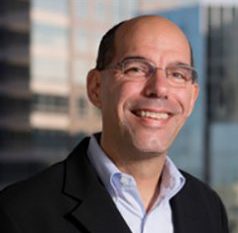For years, a number of general rules have guided leaders’ work ethics. As chief human resources officer at the Center for Creative Leadership, I hear them a lot during training and development sessions. “You can’t overcommunicate,” for example. And “when it comes to diversity, awareness is the solution.” Here’s another one: “More work hours lead to more productivity.”
While there are plenty of reasons why leaders hold on to these beliefs, most are grounded in necessities from the past. I’ve come to understand it’s time to unlearn these themes and replace them with three bold new beliefs that can better prepare organizations to thrive in the future.
Bold new belief: To communicate well, leaders must facilitate better conversations.
We all know that effective communication is foundational for a healthy organizational culture. But to communicate well, leaders don’t need to talk louder.
As many of us have adjusted to a virtual work world, we’ve had to find a substitute for walking down the hall to ask a colleague a quick question. Do we send a text? A chat? An email? Many leaders default to all of the above.
Instead of facilitating more conversations, leaders need to facilitate better conversations. Our research shows that having deep, meaningful conversations takes less time and has better outcomes for both parties. Addressing difficult issues in a quick, nonthreatening way starts with asking powerful questions and then listening to understand.
When I have a conversation with someone, my natural tendency is to jump in with my own perspective. But if I can first listen to understand and then play back what I’ve heard, my everyday interactions improve. It’s much easier to have better conversations via dialogue than it is over a text or email.
Bold new belief: To ensure equity, diversity and inclusion, organizations must take targeted action.
In a lot of self-help programs, awareness is the first step to changing your behavior. Both personally and as organizations, it’s important to look within and understand how our unconscious biases and life experiences have impacted our beliefs and behavior.
But this is just step one, and we need to realize the importance of taking targeted action to ensure diversity, equity and inclusion. The social unrest in our country is underscoring that awareness must lead to concrete plans, deliverables and metrics to ensure we achieve certain outcomes in a short period of time.
At CCL, we are utilizing our “REAL framework” to take action. The framework calls for four actions: 1) Reveal relevant opportunities, 2) Elevate equity, 3) Activate diversity and 4) Lead inclusively to align our internal actions. Not only do we use this model to help our clients, but we’ve also used it within our own organization.
For example, while we have a strong history of offering diversity and inclusion solutions to organizations, we needed to focus more of our efforts on the equity aspect of DEI. We’ve committed to sharing pay practices across gender and race. We’ve committed to putting all of our colleagues through bias training. And we’ve created a five-year historical review of how our board compares by gender and race with other boards — as well as how that’s changed over the past five years.
Bold new belief: To get ahead, employees must rest, recharge and recover.
Early in my career, I heard some advice: “If you show up to work, you’re generally better than 50 percent of your colleagues. If you show up on time, you’re better than 75 percent. And if you show up on time and work hard, you’re better than 95 percent.” My adviser was well-intentioned, and his point was that intellect doesn’t matter as much as effort. That stuck with me all these years, and I think a lot of people have heard a similar story that stuck with them, too.
The truth: Piling on hours doesn’t lead to productivity; it leads to burnout. A wealth of research shows the value of a good night’s rest, of taking breaks throughout the day to maintain focus, and of participating in activities like exercise and meditation to recharge and refocus.
Avoiding burnout starts with creating new habits. Last March, as my colleagues and I began working at home full-time, it became apparent that multiple priorities — from facilitating virtual school to caring for aging parents — competed for our time. Our schedules lacked time for rest, much less recharge.
To meet that need, our organization adopted a practice of 45-minute rather than hour-long meetings. This gives us an opportunity to take frequent breaks and to focus on other important things in our lives.
These bold beliefs can help navigate these high-activity and high-intensity times by helping build individual and organizational resilience. Fueled with resilience, we’re able to harness our energy so that while we’re working, we can burn bright.
CCL offers more information about unlearning these beliefs in its “Unlearning Your Organizational Culture” playbook.












